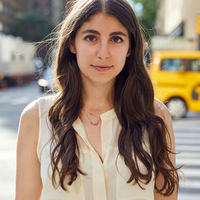Taissa Farmiga Found Freedom on 'The Gilded Age'
After the wedding of the century and a "fucking emotional roller coaster of a season," the actor can’t wait to see what’s in store for next season.
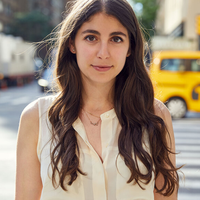
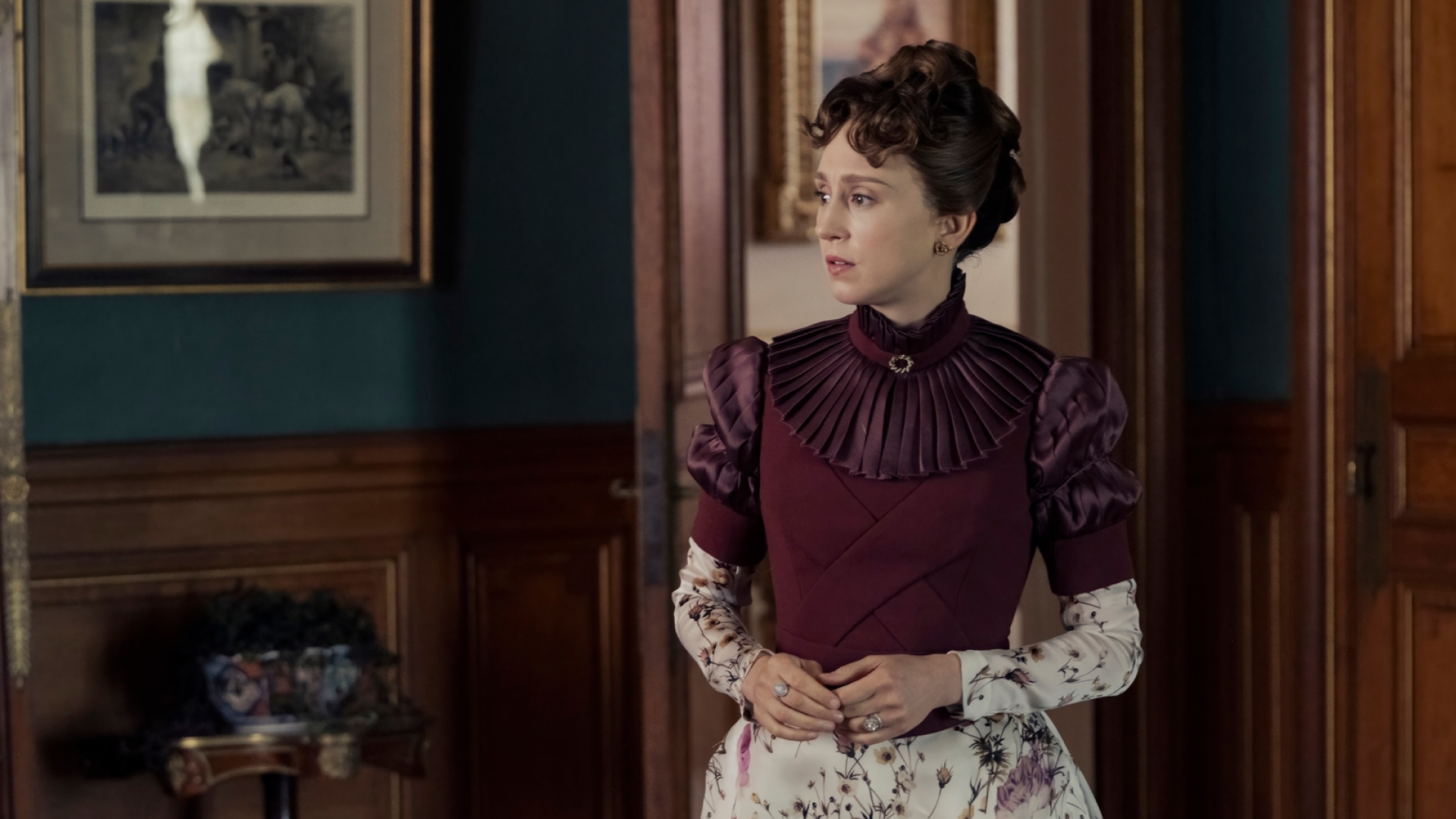
Select the newsletters you’d like to receive. Then, add your email to sign up.
You are now subscribed
Your newsletter sign-up was successful
Want to add more newsletters?

Delivered daily
Marie Claire Daily
Get exclusive access to fashion and beauty trends, hot-off-the-press celebrity news, and more.

Sent weekly on Saturday
Marie Claire Self Checkout
Exclusive access to expert shopping and styling advice from Nikki Ogunnaike, Marie Claire's editor-in-chief.

Once a week
Maire Claire Face Forward
Insider tips and recommendations for skin, hair, makeup, nails and more from Hannah Baxter, Marie Claire's beauty director.

Once a week
Livingetc
Your shortcut to the now and the next in contemporary home decoration, from designing a fashion-forward kitchen to decoding color schemes, and the latest interiors trends.

Delivered Daily
Homes & Gardens
The ultimate interior design resource from the world's leading experts - discover inspiring decorating ideas, color scheming know-how, garden inspiration and shopping expertise.
Taissa Farmiga leans in close to the camera, shaking out her shoulder-length straight brown hair. “Do you recognize me without my wig?” she asks me conspiratorially over Zoom. Just barely. For more than 10 years, the 30-year-old has been known for portraying wide-eyed terror in American Horror Story and The Nun franchise and more recently as Gladys, the youngest heiress of the Russell family on HBO’s The Gilded Age. But with a standout season—one where her emotional depth and charm made her easy to root for among an incredibly star-studded cast—Farmiga is sure to start getting spotted even without the voluminous up-dos or scream queen status.
At the beginning of season 3, Farmiga’s Gladys Russell is a sweet, naive teenager hellbent on marrying for love instead of status, despite her mother Bertha’s machiavellian plans to wed her to the Duke of Buckingham. Bertha (Carrie Coon) trumps Gladys, and by the end of the season, the 18-year-old has been sent to Sidmouth, the Duke’s estate in England; found empowerment by showing her sister-in-law who’s boss; and become sort of smitten with the Duke. Oh, she also ends the season pregnant—and happy.
Guess Bertha was right.
It’s a thrilling arc for any actor, and one that Farmiga was delighted to learn about during a conversation with series creator Julian Fellowes and executive producer David Crockett before filming began. “It's been a fucking emotional rollercoaster,” she tells Marie Claire of the season.
Speaking excitedly about the series from her home in the South of France, Farmiga shares her admiration for her “powerhouse” co-stars who make up the Russell family (Coon; Morgan Spector, who plays her father George; and Harry Richardson, who plays her brother Larry), the show in general (“It's history books and cotton candy. It's incredible”); and the costume department (“These are masters of their craft”).
On the heels of Sunday’s season 3 finale, Farmiga explains how Gladys becomes “Mini Bertha,” how finding her freedom might mean embracing her mother’s sensibilities after all, and what she hopes to see for Gladys in season 4.
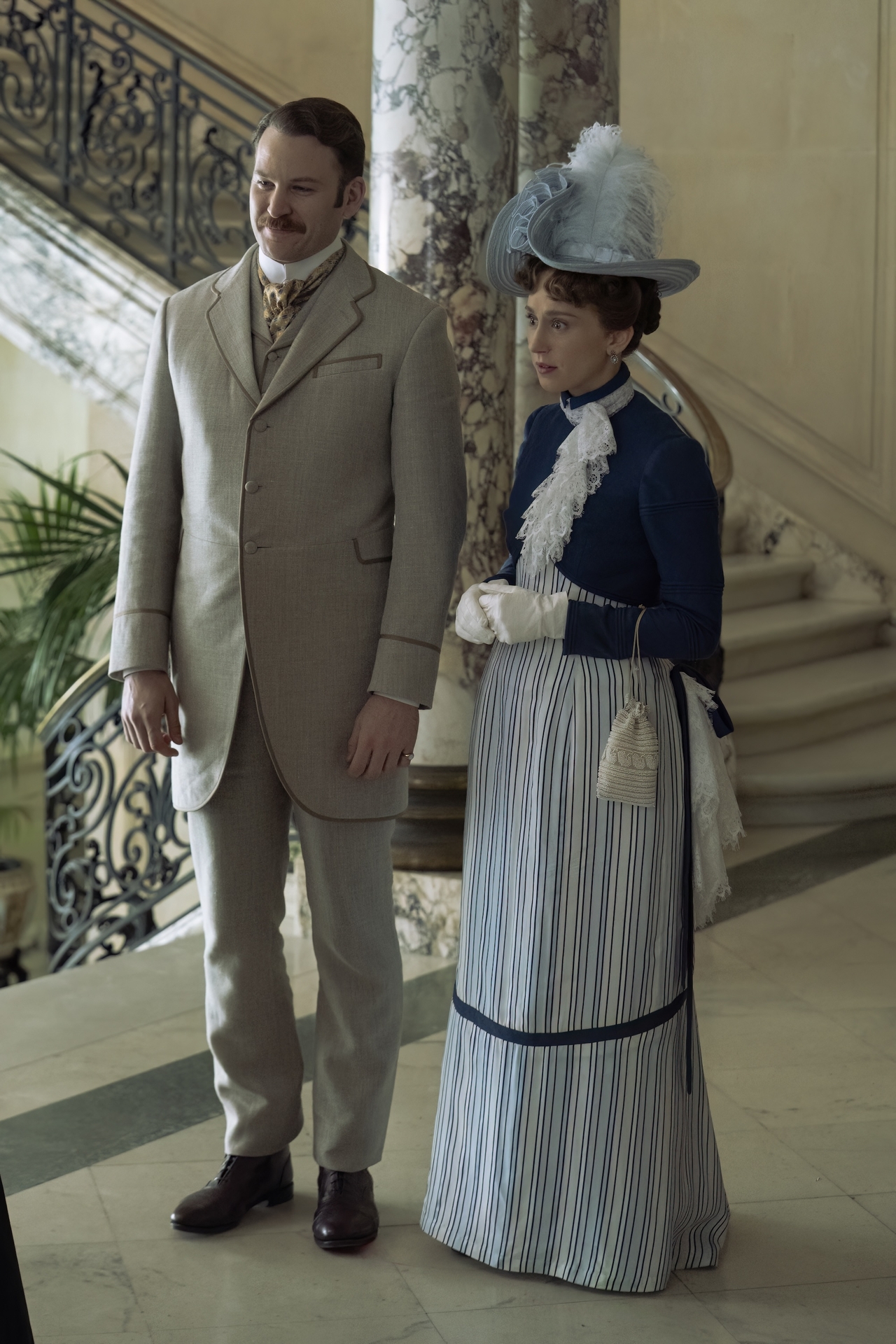
Gladys (Taissa Farmiga) was forced into a marriage with the Duke of Buckingham (Ben Lamb) in The Gilded Age season 3.
Marie Claire: Throughout this season, we see Gladys go from a lovelorn girl to a devastated bride to a confident duchess and soon-to-be mother. How did you calibrate your performance as you moved through those roles?
Get exclusive access to fashion and beauty trends, hot-off-the-press celebrity news, and more.
Taissa Farmiga: When she starts season 3, she feels like she has power over her mother. She's learned how to navigate her with the help of her brother, Larry. They have that sibling dynamic with the winks and the smiles and the sneaky glances, like they know how to maneuver around Bertha Russell. But in the end, they really don't.
MC: No one does.
TF: No one does, not even her husband. But you see she's feeling on top of the world. You see her talk back a bit to her mother. Then her whole world comes crashing down, and that's the divot in the middle of the season [when she gets married]. At the end, things start to work out. Gladys will never admit that Bertha was right, but maybe she wasn't 100 percent wrong. The writing is there, the character arc is there, and I get to work with phenomenal actors.
MC: What have you learned from working with Morgan and Carrie, and how do you approach working with them?
TF: I'm a person who loves to observe, and these are two actors who are so intelligent and so cool. The Russell family dynamic really clicked immediately. When I'm there, and I'm looking in their eyes, and I'm feeling all the despair and the sadness and the loneliness and the betrayal that Gladys is feeling, and it's just Morgan's there looking so heartbroken as George, you don't have to play pretend that much. Obviously, it's hard work, but when you really connect with another actor, you fall into it and all of a sudden you kind of forget what's happening between “action” and “cut,” because you're just so immersed. And Carrie is so good at being a cunt. Pardon my French.
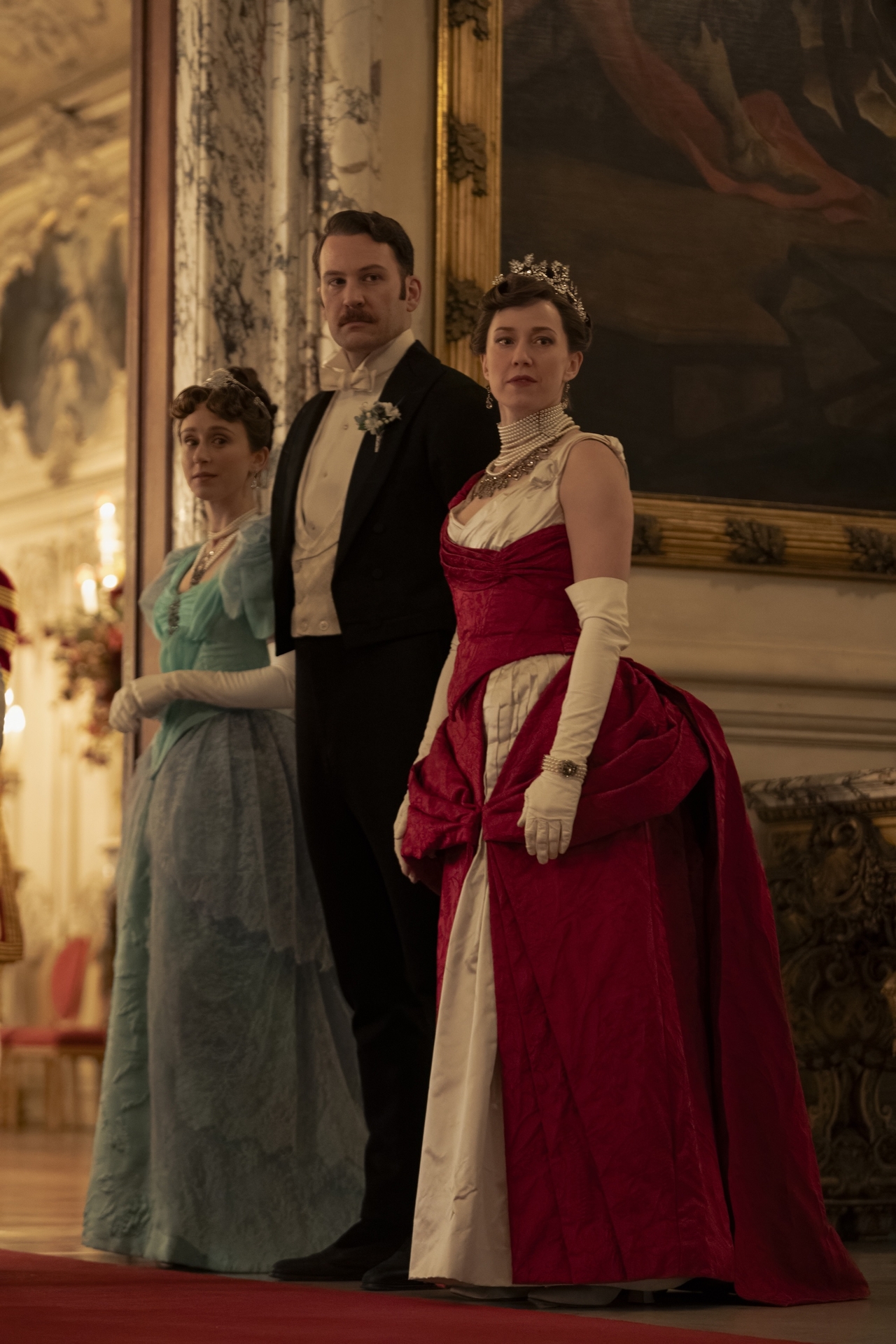
"This is the first time in three seasons that we're seeing Gladys and her mom link and connect in any way," says Farmiga.
MC: This is a unique ensemble in that there are so many different women from different generations. I'm curious if that has affected your experience filming?
TF: You can feel the experience. You can feel the history. You can feel the knowledge and the talent when you walk in the room. I'm not sure if it's due to the fact that a lot of our cast is theater actors, but there's a different sort of core you have as someone who's based in the theater. There's more camaraderie. There's appreciation for the familial aspect of it. There's no battle for, I'm head bitch or I'm the one who's supposed to be number one on the call sheet. There's no cattiness.
MC: In the second half of the season, Bertha comes to visit Gladys in England, and that’s when Gladys’s fortune starts to change. For one, she and her mother have a new dynamic. They’re in cahoots together. One of the best scenes is when Gladys gets the courage to tell her sister-in-law, Lady Sarah, to sit down and wait for her to finish her meal. You get a glimpse that perhaps there is a little bit of Bertha in Gladys.
TF: Look, Gladys is a Russell. There's no way she doesn't have the genes of George and Bertha, whose love language is ambition. No matter what people say around them, they're going to trust their gut instincts more than anything. They're going to push for what they believe to be the best for their family, even if the other family members don't fully see or agree with the plan.
This is the first time in three seasons that we're seeing Gladys and her mom link and connect in any way. All Gladys has been fighting for the past three seasons was freedom and liberty and not being under her mother's thumb. She didn’t want to be a mannequin or a doll for her mother to dress.
But what's funny is that Gladys finally finds her freedom by becoming like her mother, by embracing the skills or the personality traits of Bertha. In that moment, I'm sure there's still leftover rage and trauma from being forced to marry, but what are parents if they don't give you trauma? She finally catches a glimpse of Maybe my mother does love me. She starts to understand. George's love has been a bit more about Gladys's present-day happiness, and Bertha's has been about her future happiness.
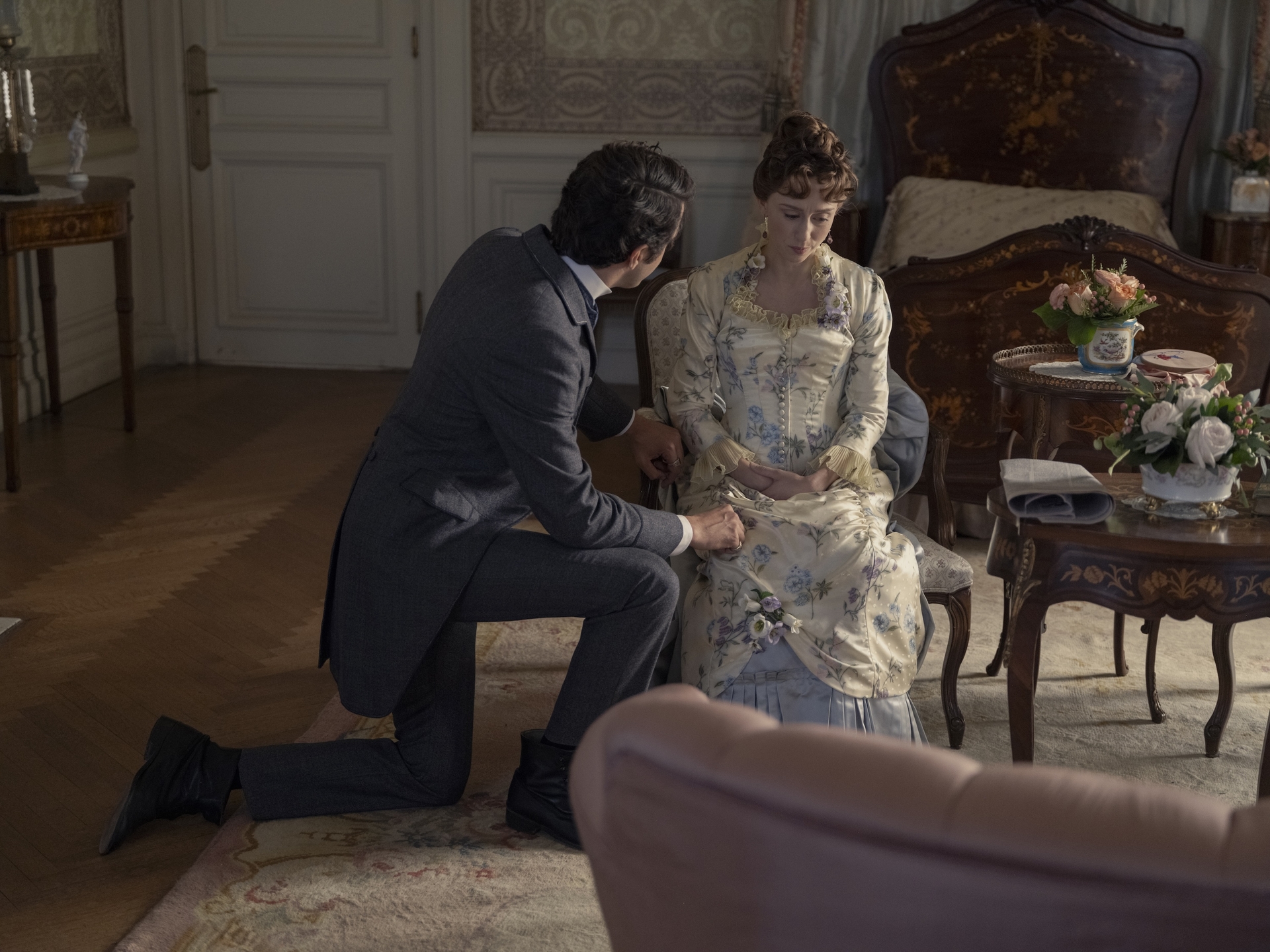
Larry (Harry Richardson) consoles his sister during season 3.
MC: So many stories that depict arranged marriages during this time period are about beautiful, naive ingenues who end up marrying abusive, evil men. I was waiting for that to happen and was so pleasantly surprised when the Duke proved me wrong.
TF: Hector is not a dick. They're just two people who hadn't really had a moment to get to know each other. Of course, she would be scared to marry a stranger, but she really never gave him a chance. I thought it was beautiful when she asked him before the wedding, "Is it okay if I don't love you?" And he was just honest. That was the first moment they connected.
They're two people, both lost in different ways. During the negotiations, George offered more money to Hector through the means of an allowance for Gladys. That really tilled the soil to be able to plant the seed for partnership, because Hector has to rely on his wife. Hector is just a bit aloof, and is content with "My sister does everything." When Gladys comes in, she’s like, Well, hold on. Mini Bertha can come in and grow to be big Bertha.
Gladys is a Russell. There's no way she doesn't have the genes of George and Bertha, whose love language is ambition.
MC: At the end of season 3, Gladys tells her mother she’s pregnant. What do you think Gladys will be like as a mother?
TF: I think she will be more inspired by George's parenting than by Bertha's parenting. I think she's going to want to give more of the emotional comfort that Bertha doesn't give, even though we know Bertha loves her children. She loves them so much, but sometimes a child needs a hug and a gentle smile, not like a firm guiding hand. Sometimes it's just acknowledging their feelings.
MC: When Gladys set sail for England, I was a little worried that we weren't going to see much of her. If there is a season 4, what do you hope we'll see from her? [Editor’s Note: Since this interview, HBO renewed The Gilded Age for a fourth season.]
TF: What sets us apart from Downton Abbey is that it's American history, and I'm curious how much they [will] show Gladys in England, or would she be able to come back and, I don't know, bring some English manners and chaos to New York? I hope I don't have to play pregnant too long. I don't want to have to wear a corset with a pregnancy belt. Let's just throw this out there—maybe Julian reads this. But also I'll do what I have to do!
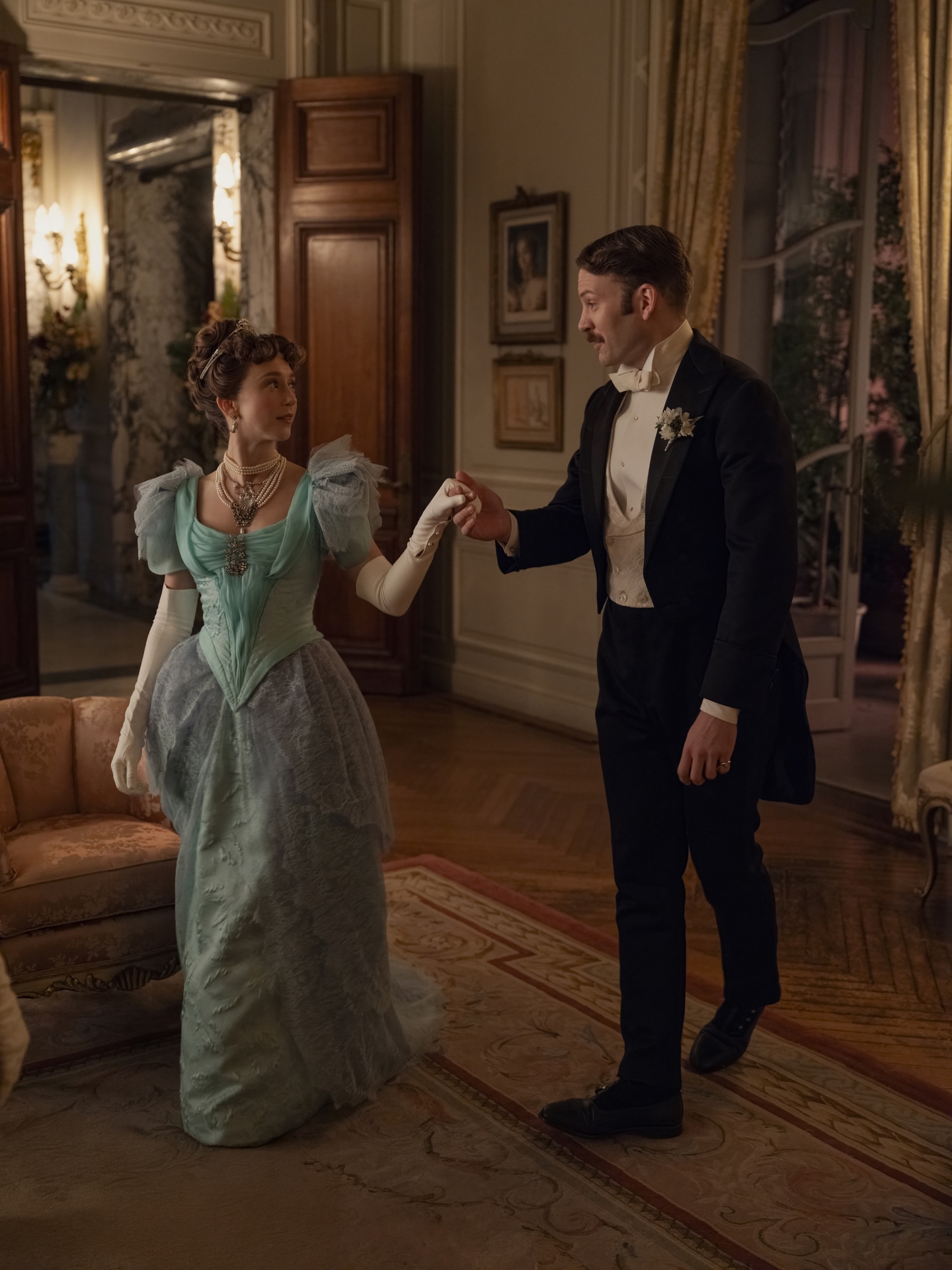
"Hector is not a dick. They're just two people who hadn't really had a moment to get to know each other," says Farmiga.
MC: All the costumes in the show are exceptional. Did you notice a shift between American Gladys and English Gladys?
TF: There was a huge shift between American Gladys and Gladys arriving in Sidmouth. The fabrics changed. There was a bit more of this flat and softer stuff, whereas she wore more satin in New York. New York is definitely more showy. In England, everything has to be more subdued. The costumes are absolutely, absolutely insane. What's wild is that they had to cut the wardrobe budget this season.
MC: You could never tell.
TF: It feels like they've stepped it up. It feels like they had more money.
MC: What was your favorite scene of the season to film?
TF: I love the scene that you mentioned when she's in Sidmouth and Bertha's there, and it's the first time you see Gladys become a mini Bertha. Speaking of the wardrobe, they had put a different dress in my trailer for that scene. It was this lilac purple flowy dress, which was very emblematic of previous season Gladys. It was the first time in three seasons that I was like, I don't agree. I don't feel like this is the right dress.
This is the moment that Gladys puts her foot down. She takes her place and she uses her title. She's the Duchess in that moment. I asked for one of my favorite outfits of the season—the dress I wore in that scene. It was this darker blue, a bit lacy. It felt a tiny bit sexy for the time period. It felt more mature, it felt lady-like.
I was so humbled that they allowed me to express my feelings about the character and be like, "Can we change it?" I felt more confident and in the moment, and it was a very triumphant moment for Gladys.
What's funny is that Gladys finally finds her freedom by becoming like her mother, by embracing the skills or the personality traits of Bertha.
MC: What was the most difficult scene to film?
TF: I feel like the wedding lasted three weeks. If you look at my career, you’ll see that maybe 70 percent of my projects have been genre or genre-adjacent. Everything's so heightened in genre pieces, and you feel things so much more. That’s why I love Gladys’s arc this season. The high was super high and the low was super low. You really get to feel everything so intensely. Maybe it's exhausting and you have to calculate how much water you're drinking to make sure that you still have enough tears to keep doing this crying part for seven hours a day, but whatever. So even though it was the hardest scene, it also was one of my favorites as well.
I'm grateful to spread my wings a bit and get some nice meaty scenes and see this girl grow. We've seen her journey, but she's always kind of been an accessory to even the big moments in her life, like her coming out ball. She was an accessory to Bertha's moment. This time she got to shine.
Jessica Goodman is the New York Times bestselling author of The Counselors, They'll Never Catch Us, and They Wish They Were Us. She is the former op-ed editor at Cosmopolitan magazine, and was part of the 2017 team that won a National Magazine Award in personal service. She has also held editorial positions at Entertainment Weekly and HuffPost, and her work has been published in outlets like Glamour, Condé Nast Traveler, Elle, and Marie Claire.
